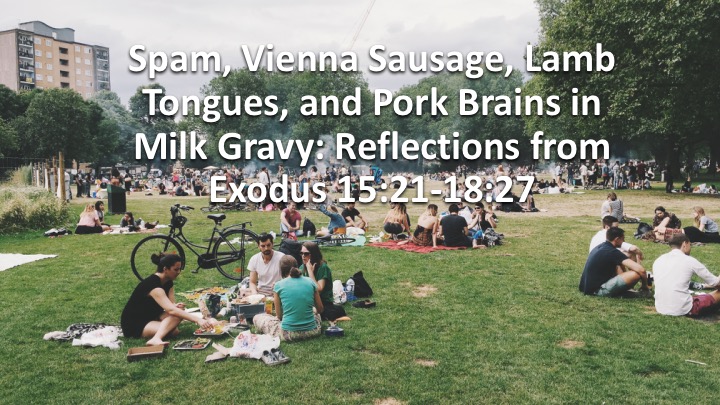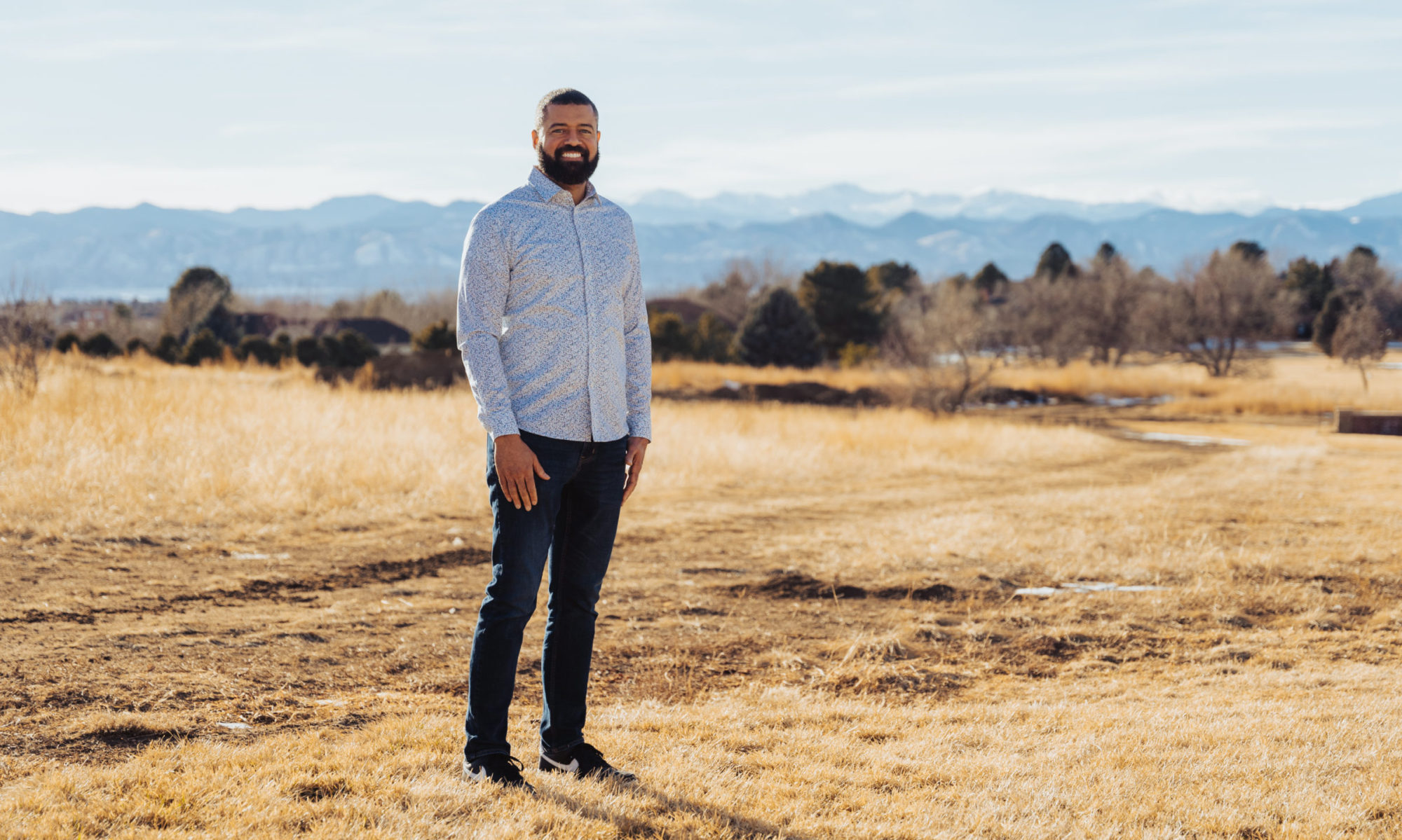
At First Glance – Read Exodus 15:21-18:27
After the Israelites are led in worship by Miriam they quickly realize that life in the wilderness is going to be hard. They are hungry and God provides them manna (bread from heaven) in the morning and meat in the evening. Apparently, they missed the meat in Egypt. They made it sound like they had lots (pots) of meat to eat while living there. I think this is what you might call revisionist history. They didn’t have pots of meat, not even potted meat. “You guys remember back in Egypt we had all the Spam, Vienna Sausage, Lamb Tongues, and Pork Brains in Milk Gravy (ok maybe not that last one) we ever wanted?”
Man, Moses did them a favor. Bread and quail sounds pretty good.
It’s kind of like how your parents talk about when they were growing up, everyone did what their parents said and never got into trouble. The world was good and ethical. As if there wasn’t a such thing as World Wars, the sexual revolution, women’s suffrage and Jim Crow laws.
It reminds me that you can take someone out of their oppression but you can’t immediately change their mindset. It’s almost as if the Israelite’s journey was doomed from the start.
Yet included in this narrative is the reminder that God is with them in the cloud. That for 40 years He feeds them and provides their protection.
Meanwhile, Moses tries to play God by making decisions on each and every conflict. He has taken his leadership role to the extreme and he is extremely worn out. What he reveals is that he still has much to learn about being a leader. His father-in-law, Jethro teaches him how to multiply his influence. It’s like God is foreshadowing what he wants to do with all of his people.
God wants them all to be priests and mediators (when God calls them to the mountain but they are too afraid and elect Moses to go instead). He does not intend to feed them from heaven and draw water from a rock every day.
Yes, God is ultimately the one who feeds us, “give us this day our daily bread.” But also “The man who does not work does not eat” is apropos. The farmer is fully dependent on God for rain yet he must also cultivate the land. The Israelites are learning to trust God and work together in faith without complaining. Together they will be able to do much more for God than Moses can do alone.
Even if it takes another generation for them to realize it.
A Deeper Look
In his commentary, Peter Enns points out that the main purpose for God feeding and providing water for the Israelites is so that they will know that it was God who brought them out of Egypt (Enns, Kindle Location 6589).
Terrance E. Fretheim says that God connects the food with faith so that they can begin to trust God’s good intentions. They have lost trust in him shortly after being away from Egypt. Fretheim also connects God’s action of raining down bread as another act of him creating and recreating (Fretheim, 179, 182-183).
A lack of food is a big test to the congregation of Israelites. “Where is our next meal coming from?”, is a very valid concern for thousands of people without a home. A lack of food puts their faith to the test.
God is building into them a rhythm of daily and weekly trust in him. On the sixth day that are to collect enough food for day seven. They are to rest from their labors. This is a day to rely on God to provide even though they have not worked that day.
Fretheim is not surprised by Moses’ ineptness as an administrator. He describes Jethro’s advice as “worldly.” Yet, he believes that when Jethro says, “and God so commands,” we should not assume that he received a verbal command from God but that he may simple be discerning that this advice seemed good to God (p.199).
If Moses is God’s instrument, then why didn’t God reveal this advice to him directly? This is a question that Enns asks but has no answer to (Kindle Location, 7545).
Exodus for Today
Whenever the people of God receive some form of hardship it is always a test of faith. When I am tested by hardship, am I going to be content in God or am I going to complain and wonder if he is still good?
I have never been so hungry that I wondered where I would receive my next meal. “Give us this day our daily bread” is often prayed in my house but never out of fear or despair. Most have homes and plenty to eat. The Israelites were fully dependent on God for food and water.
God wants us to be dependent on him and work as though we are working for him and not man.
He wants us to use our talents for the nourishment of the world.
Soon the Israelites will unite together to build a tabernacle. Soon they will be at the foot of Sinai ready to receive the will of God for the people of God. His commands will soon be set in stone.
Is God’s will set in our hearts?
Jethro teaches us to recognize that Godly advice can come from the least expected places.
Finally, may we see each day as a day that we are dependent on Jesus and may we build weekly rhythms of rest so that we know God is doing good even when we choose to do nothing, go nowhere, be still – and rest.
How might you identify with the Israelites in the Exodus story? Please share your comments below.
Jovan preaches for the Littleton Church of Christ near Denver, Colorado. Visit here to listen to sermons preached by Jovan.
